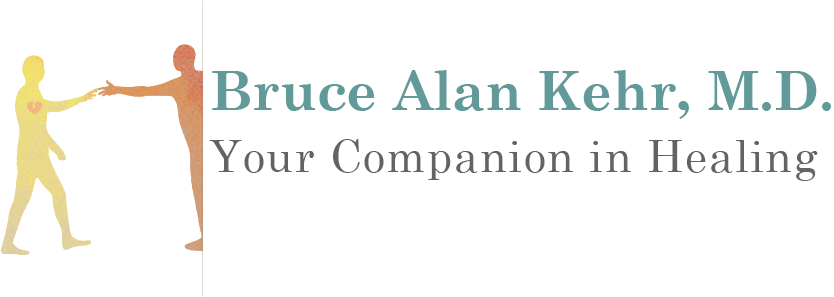In sickness and in health, each of us manifests unique characteristics. A good doctor is a “medical detective,” leaving no stone unturned to get to the bottom of what’s wrong, and then how best to treat it. An example of this principle is the story of “Sharon” (not her real name) who came to see me with complaints of memory loss.
Several months ago, Sharon’s daughter called my office to see if an appointment with me might be helpful for her mother. Her mother has recently begun having trouble remembering basic things like her granddaughter’s name, and would park her car in a neighbor’s driveway after confusing their house for her own. She wasn’t sure if this was just a part of her mother “getting old” or if there might be something medically wrong. I encouraged her to bring her mother into the office for a workup. I assured her there were simple tests that could determine if it might be a more serious problem, and depending on what we uncovered, there would be treatments and steps she and her mother could take to help manage a disease, should one be diagnosed.
The “Work Up”
I met with Sharon and her daughter and took a careful history of her concerns with memory loss, as well as the other worrisome factors her daughter had noticed. I then used a screening test called the MoCA to test Sharon for cognitive impairment, and the results revealed that significant mental impairment was present. I then went through the possible diagnostic tests for dementia (including Alzheimer’s Disease), that we could perform to obtain further diagnostic clarity.
I also recommended she get an MRI of her brain to check for any physical problems. Finally, I ordered a number of blood tests to check her nutritional status and overall health. As discussed in a previous blog, some nutritional deficiencies and other physical and mental factors can cause signs of dementia, and may be reversible.
The Diagnosis
Sharon’s blood tests turned out to be normal, and her MRI of the brain did not reveal physical problems like constricted arteries (called ischemic small vessel disease), tumors, normal pressure hydrocephalus, or stroke. Given the results of these tests, and the fact that Sharon’s memory problems had been worsening rapidly over the past year, and that this rapid progression was not typical of Alzheimer’s Disease, I ordered a specialized PET Scan (brain imaging test) that confirmed high levels of a protein called amyloid beta. These abnormal proteins indicate that Alzheimer’s Disease is present, and, sadly, this diagnosis was now confirmed. It is worth mentioning that this type of rapid progression is not typical of Alzheimer’s Disease, but is the subject of scientific research. In the context of an unusual presentation of memory loss, a PET scan sensitive to detecting amyloid beta deposits can be quite valuable. We talked through what the diagnosis meant and devised a plan to help her and her family cope.
Sharon’s Treatment Plan
I mapped out a comprehensive three-pronged treatment plan tailored to Sharon’s unique needs and circumstances. This included a medical approach called MEND along with prescription medication, supportive care from her daughter, and even technology and resources in the community that are designed to help manage daily life and medical care for those suffering from dementia.
MEND
MEND stands for “metabolic enhancement for neurodegeneration.” This means improving cell function and chemical processes in our bodies to prevent cognitive decline. MEND helps to prevent or stem cognitive decline and, in some documented cases, has even shown improvement of cognitive function with patients presenting with symptoms of dementia. [i]
The MEND approach for Sharon included:
- Reducing or eliminating simple carbohydrates (processed sugar)
- Reducing or eliminating gluten and processed food
- Increasing her intake of vegetables, fruits, and fresh fish
- Practicing Yoga
- Increasing sleep time
- Meditating for 20 minutes a day
- Adding Melatonin at bedtime
- Increasing Vitamin D3
- Adding fish oil supplements
- Optimizing oral hygiene with an electric toothbrush
Supportive Care
I worked with Sharon’s daughter and Sharon to identify some steps and actions they could take to help support Sharon as she copes with the effects of cognitive decline on daily functioning. As Sharon’s Alzheimer’was in an early stage, she could independently carry out daily tasks with minimal assistance. However, checks and balances needed to be put in place.
As Sharon usually woke early in the morning, her daughter committed to a 15 to 20 minute telephone “check in” each morning, and an extended home visit on Sundays. They would ensure she had bathed and had a plan for meals for the day. They would go over a calendar for any appointments for the day and reinforce them with sticky notes on the refrigerator with times and locations. They also posted important cell phone numbers and emergency numbers to the refrigerator. These numbers were also programmed in Sharon’s cell phone. I suggested they start to plan for the future to determine how Sharon would like her affairs handled, and by whom, in the ensuing years, should the decline continue.
Technology and Community
I also encouraged them to reach out on the Internet to trusted sources and organizations that work with dementia patients and their caregivers. A wealth of information can be found on the Alzheimer’s Association website.
I also suggested that they may want to participate in a course or connecting with the Insight Memory Care center, which has a whole host of programming for those with declining memory function and dementia. They focus on both the patient and the caregiver and have activities in which both can participate.
Finally, I also pointed them in the direction of Caring Village. In addition to informative articles and checklists, Caring Village’s mobile app and dashboard can help caregivers, like Sharon’s daughter, coordinate the complicated care of chronic disease management. Learn more here.
While Sharon and her daughter may not be able to adhere to this treatment plan 100% of the time, I’ve found that they manage to follow most of it. Sharon is able to accomplish enough of the MEND plan for it to have a healing and positive effect on her mental functioning. In addition, her daughter is learning as much as possible about the disease, and each is utilizing technology and community resources where helpful. With her treatment plan in place and support from her daughter, Sharon is managing and coping with Alzheimer’s in the best possible way for her and her family.
For more information, including how you can order the Build Yourself a Healthier Brain mini-book, click here.
A Tip to Untangle Your Brain™
Disclaimer ©2017 Untangle Your Life, LLC




